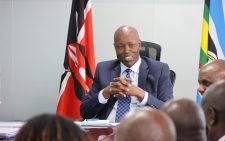Careful use of titles would restore their dignity

Kenya has a new epidemic: throwing titles around. There is an obsession with prefixing letters before one’s name, particularly in public spaces such as political rallies and other platforms.
You have CPA this, Dr that, Engineer so-and-so and Senior whatever. There is also Professor so and so.
Fixing titles before names has existed for a while. Previously, however, it was the preserve of traditional healers and medicine men with outlandish claims.
You would find, pinned on an electricity pole, an advertisement of the services of a doctor so-and-so or professor so-and-so, often supposed to have come from some distant exotic land such as Zanzibar, Tanga or Pemba, with powers to heal everything: secure political victory, restore love gone sour, cure infertility, pass exams and so on.
Then, some preachers took over.
They would travel out of the country and acquire some title by the time they returned. A preacher with no known quantity would transition overnight from street performer to doctor.
Acquiring titles is not a mean fit. There are two types of doctorates, none of which comes easy or cheap.
The first is a doctorate, and the second is a Doctor of Philosophy (PhD). Each has an elaborate path to attaining it, often requiring no less than 21 years of hard academic work.
One starts with eight years of lower-level education without considering the pre-primary school years.
Then, there are four years of secondary school, another four years of university to attain an undergraduate degree, two years for a master’s degree, and the last three wild years to earn a conventional PhD.
For a PhD, one must convince a panel that they have tackled a critical area and addressed a knowledge gap. In the process, you wrestle with supervisors, some of whom care less whether you make it or not.
Sometimes, you wonder whether it was worth the struggle by the end of it.
The other path to the title is through an honorary doctorate. In theory, this should not be easy either.
To have attained such honour to be conferred the title ordinarily should have demanded so much achievement by the individual.
In fact, by the time somebody is deservedly conferred an honorary doctorate, their achievement should be so outstanding that whether you prefix the title before their name is neither here nor there for them.
Let us sample some of the people upon whom the honorary doctorate has been conferred: Bishop Desmond Tutu, Nelson Mandela, Manu Chandaria, and Kofi Annan. Their achievements precede them.
They do not need the titles to validate them; their contribution to society is sufficient validation.
Because their achievements precede them, the most deserving recipients of honorary doctorates do not even bother to prefix the titles to their names.
However, the obsession with these titles in Kenya is different. Most people clamouring for the titles may very well be seeking validation. Too often, the title’s meaning may not be known beyond a small circle of insiders.
How many average people know what a CPA is beyond the community of accountants, and how many know what a PhD is beyond the community of scholars?
The title Senior is so often misused that its dignity is lost.
Once there is a demand, there will always be a supplier. Kenyans crave titles, and briefcase providers are ready to meet the need.
Only this week, the Commission for University Education (CUE) busted individuals in a hotel offering a three-day training leading to the awarding of a PhD.
It is probably time for the country to stop using titles outside the relevant community. Seniority and achievements are known within closed communities and need no broadcasting.
The doctor title should be preserved for medics. You do not need the doctor title to be a good politician or preacher.
CUE should lead the process of streamlining the use of titles to stem the misleading craving. People outside the university or medical practice could cease using the title.
— The writer is the Dean of Daystar University’s School of Communication












